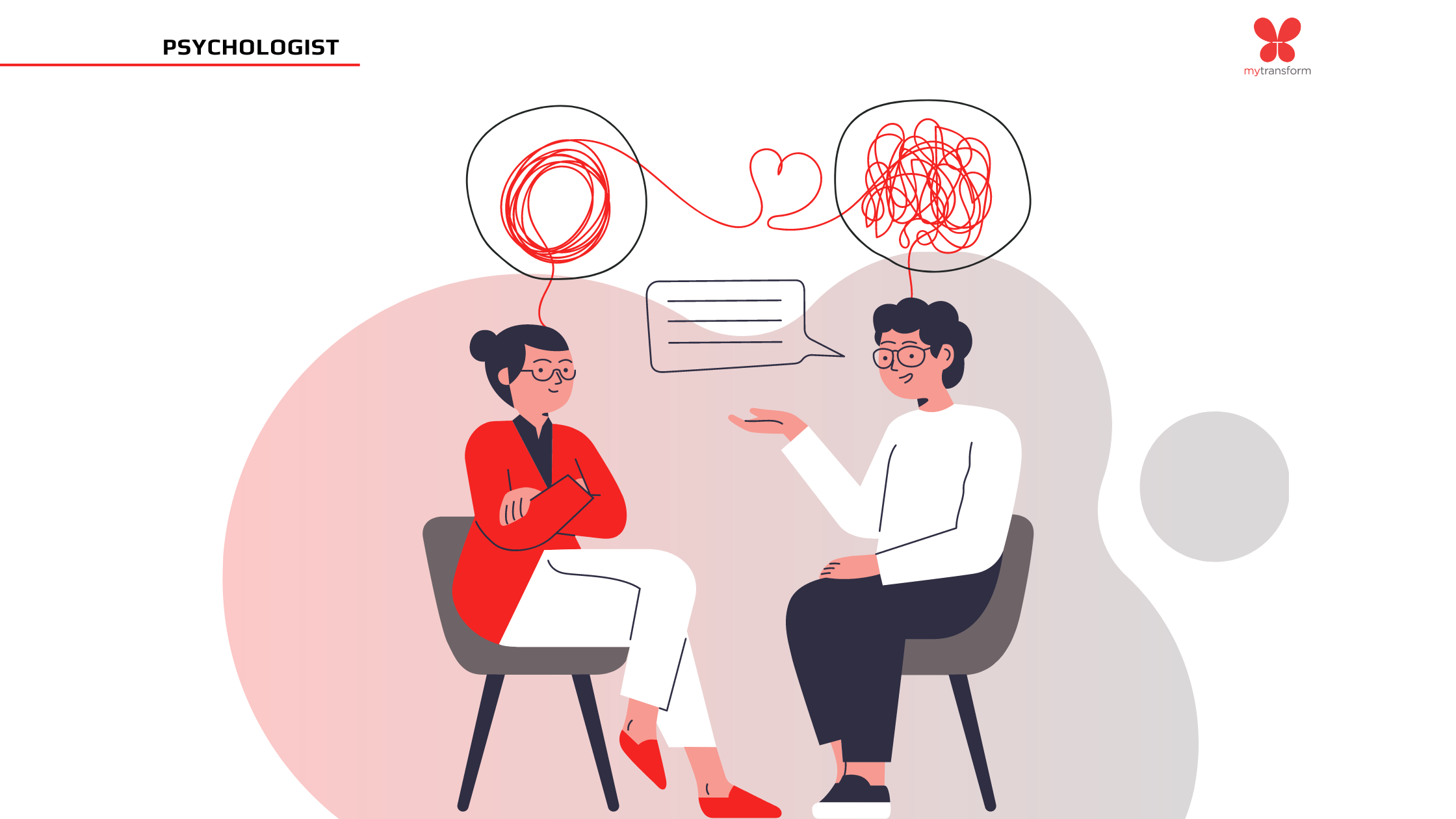How to Pick the Best Psychologist in Delhi for Personalized Treatment
How to Pick the Best Psychologist in Delhi for Personalized Treatment
Blog Article
Psych Treatment: A Comprehensive Overview to End Results and methods

Cognitive-Behavioral Treatment
Cognitive-Behavioral Treatment (CBT) is an extensively used psychotherapeutic approach that focuses on determining and customizing inefficient reasoning and behavior patterns. Developed in the 1960s by Aaron T. Beck, CBT integrates behavioral and cognitive theories to address different psychological health and wellness issues, including depression, anxiety, and stress-related disorders. The premise of CBT is that maladaptive thoughts contribute to psychological distress and maladaptive habits. By restructuring these thoughts, people can achieve substantial renovations in their emotional wellness and daily performance.
CBT is characterized by its organized, goal-oriented nature. Treatment normally involves a collaborative procedure in between the specialist and client, where certain issues are determined, and sensible methods are developed to resolve them. Techniques such as cognitive restructuring, direct exposure treatment, and skill-building workouts are generally utilized. Cognitive restructuring includes challenging and modifying negative thought patterns, while direct exposure therapy aims to decrease concern and anxiousness with steady exposure to feared circumstances or things.
Evidence-based study supports the efficiency of CBT for a broad variety of emotional conditions - Best Psychologist in Delhi. Its emphasis on ability procurement and self-help strategies encourages customers to continue progression separately after treatment concludes. The flexibility and efficiency of CBT have made it a foundation in modern psychotherapeutic technique
Psychodynamic Strategies
Rooted in the very early concepts of Sigmund Freud, psychodynamic strategies concentrate on exploring the subconscious mind and its influence on habits and emotions. These techniques intend to uncover covert ideas and sensations that might be driving maladaptive actions and psychological distress. Central to this approach is the principle of internal dispute, often originating from unsolved past experiences, particularly those from youth.
Therapists making use of psychodynamic techniques employ a number of essential techniques, including totally free organization, where people are encouraged to talk freely to expose subconscious material, and desire analysis, which translates the concealed material of desires. Additionally, the expedition of transfer and countertransference dynamics within the healing partnership is important. These interactions can provide insights right into the client's inner world and relational patterns.
Psychodynamic therapy is commonly longer-term contrasted to various other techniques, offering a deep and comprehensive understanding of the person's mind. Study indicates that it can be especially efficient for complicated psychological wellness concerns, such as individuality disorders and chronic clinical depression. By promoting self-awareness and psychological understanding, psychodynamic treatment seeks to bring unconscious material to consciousness, making it possible for people to accomplish enduring and significant modification in their lives.
Humanistic Techniques
Building on the structures laid by psychodynamic techniques, humanistic methods offer a distinctive perspective focused on specific potential and self-actualization. Coming from the mid-20th century, these techniques prioritize the inherent goodness and development capacity of people, emphasizing an alternative view of human experience. Secret numbers such as Carl Rogers and Abraham Maslow have considerably affected this restorative technique, which encompasses techniques like client-centered therapy and Gestalt treatment.
Client-centered therapy, developed by Rogers, plays an essential duty in humanistic strategies. The specialist's function is more of a facilitator than an authority, encouraging customers to harness their inner resources for recovery.
Gestalt treatment, another crucial humanistic strategy, highlights existing minute awareness and the combination of mind and body. By focusing on the "below and currently," clients get higher insight right into their current feelings and behaviors. Strategies such as role-playing and led visualization are commonly used to aid customers obtain a deeper understanding of themselves, eventually causing boosted self-awareness and gratification.
Integrative Therapies
Integrative treatments represent a synthesis of different therapeutic strategies customized to meet the distinct requirements of each client. This method recognizes the intricacy of human psychology and the multifaceted nature of psychological health problems. By incorporating components from different schools of psychiatric therapy-- such as cognitive-behavioral treatment (CBT), psychodynamic treatment, and humanistic techniques-- integrative treatments supply a more holistic and flexible treatment paradigm.
Specialists of integrative therapy examine each client's specific needs, signs, and individual history to design a personalized treatment strategy. This individualized method improves the capacity for healing success by attending to the root creates of psychological distress and advertising total health. Techniques might consist of mindfulness workouts, cognitive restructuring, and psychological handling, each chosen to target various elements of the client's problems.
Moreover, integrative therapies highlight the therapeutic connection, checking out the client-therapist bond as an essential part of efficient therapy. This connection promotes a supportive atmosphere where clients feel secure to check out and address their worries. The adaptability of integrative treatments makes them ideal for a wide variety of conditions, consisting of stress and anxiety, depression, trauma, and interpersonal difficulties, consequently enhancing their applicability and performance in varied medical setups.

Determining Treatment Results
Evaluating the performance of psychiatric therapy is important for both customers and clinicians to guarantee that the therapy is generating the preferred outcomes. To accomplish this, different methods and devices are employed to gauge therapy results methodically. Standard assessment instruments, such as the Beck Anxiety Inventory (BDI) and the Generalized Stress And Anxiety Disorder 7 (GAD-7), give quantitative data on signs and symptom intensity and adjustments over time.
In enhancement to standardized devices, qualitative methods like customer self-reports and scientific interviews supply beneficial insights into the individual experiences and regarded progression of customers. Frequently set up analyses, typically at the start, navel, and end of therapy, aid in tracking the trajectory of enhancement or determining locations needing Related Site change.
End result measurement is not restricted to signs and symptom reduction; it additionally includes useful enhancements in day-to-day live, such as much better interpersonal connections, boosted job performance, and enhanced general wellness. Modern developments in digital health have actually presented mobile apps and on the internet systems that promote real-time monitoring and responses, even more refining the evaluation process.
Ultimately, an extensive strategy to measuring treatment results makes sure that healing interventions work, effective, and tailored to fulfill the specific needs of customers, thereby enhancing the overall therapeutic experience.
Final Thought
Humanistic methods concentrate on personal check my reference growth and self-actualization, while integrative therapies incorporate numerous techniques for customized therapy strategies. Reviewing treatment end results with standardized assessments and qualitative methods makes sure a detailed understanding of performance, inevitably directing clients towards sustaining mental wellness renovations.
From the organized method of Cognitive-Behavioral Treatment (CBT) to the deep expedition of the subconscious in psychodynamic treatment, each method brings special benefits. Its emphasis on ability acquisition and self-help techniques encourages customers to proceed development separately after therapy ends (Best Psychologist in Delhi). Secret figures such as Carl Rogers and Abraham Maslow have considerably influenced this healing technique, which includes approaches like client-centered treatment and Gestalt therapy

Report this page